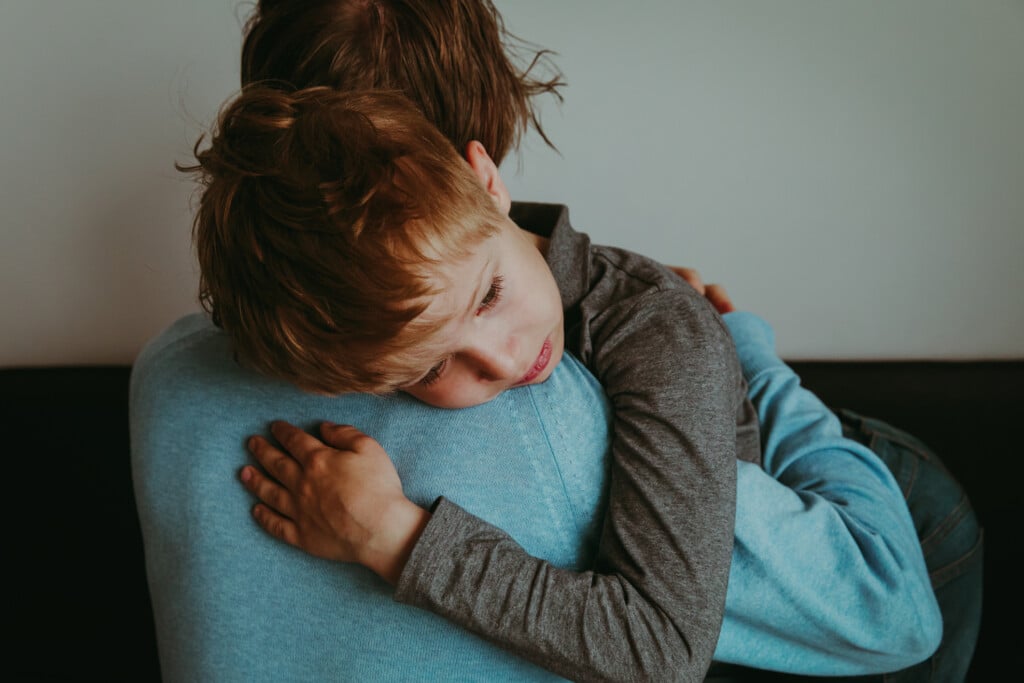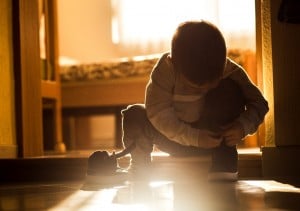Many parents have the same overall goal of raising happy and healthy children. There is no guidebook to help parents figure out precisely what will work for their child. They often act instinctively or based on their own experiences. This can mean that sometimes parents make mistakes and unintentionally hurt their kids without knowing it. These mistakes are not malicious. They’re just mistakes. Some of the most harmful things we can do to our children can come from positive intentions.
10 Ways Parents Are Hurting Kids Without Knowing It
Below are some ways parents might harm their children without knowing they are doing it. People are not perfect, and this is not to make parents feel guilty. However, we can change our ways or work toward more gentle and compassionate ways of parenting. Methods that will get you closer to being a parent raising their child to be happy and healthy.
1. Trying to Make Them Happy All the Time
A parent aims to have happy children all the time and put all their efforts into making them feel good, right? Give in to them and ensure nothing triggers them or nothing terrible happens. It sounds good but doesn’t set them up for success and may be hurting their kids without knowing it. It is not realistic that they will be happy all the time. Life is a series of ups and downs, and we need our kids to develop resilience to cope with them.1 However, if nothing ever goes wrong, they may never develop the skills and strategies required to deal with upsets, challenges, or complexities.
2. Making Empty Threats
Saying, “I’ll throw all your toys away if you don’t clean your room!” is meant to encourage a child but often won’t have a successful effect if you don’t follow through. The goal is for your kids to clean up after themselves, but empty threats undermine your authority. Your child doesn’t learn there are consequences for their actions if they are never held to account. This can have a wide-ranging impact on the way they treat others and engage with them.
3. Being Too Strict or Too Permissive
Finding a balance with rules is essential to help prevent hurting kids. Too strict and children can rebel. Young children find it hard to remember all the rules you set. Chances are they will make a mistake or slip up at some point. When children are criticized too much, or the balance of feedback is too skewed toward the negative, their self-esteem can lower, and they may lose confidence. And when children don’t have enough boundaries or rules, they can feel unsafe because they don’t know what to expect from the world or how to manage themselves, creating fear and worry.2
4. Telling Them You Will Leave Them Behind if They Don’t Cooperate
“Ok, bye then. Mommy’s leaving” can be an effective threat. Children become distressed and will often come running or stop whatever they are doing. It looks like compliance, but this message accidentally reinforces the idea that you will abandon them if they are doing something wrong. Using such a significant emotional threat destabilizes the security of their attachment to you. It can also project into other relationships and make them fearful that others will abandon them.
5. Rushing to Help Too Soon
We don’t want our kids to struggle, so it can feel natural to rush in and support them when things get tough. If they can’t tie their shoes, it’s tempting to swoop in and do it for them. However, your child will never learn resilience if they don’t keep trying. They can also become reliant on others to help them when they get into sticky situations.3 It’s crucial to balance support against their developmental level and skills. That means not to expect a toddler to be able to tie their shoes, but a 5- or 6-year-old who you have shown multiple times could be expected to give it a good try.
6. Withholding Affection or Ignoring Them
Yes, it can be vital to take a moment if you feel frustrated or maybe you are overwhelmed. However, ignoring them or intentionally withholding attention or affection as a punishment can hurt kids. Children who feel isolated emotionally or experience emotional deprivation from a parent can experience stress. Stress hormones and early, repeated stressful experiences can result in adverse issues like poor physical health (heart health) and general well-being, including increased responses to perceived threats.4
7. Shutting Down Their Feelings
Messages like “You’re okay” or “It’s not that bad” are well-intentioned but accidentally invalidate their feelings. These messages come from wanting to reduce their distress or because we might not see the problem being as big as our child’s level of emotions which can hurt kids. However, it’s essential to our children, and when we push away or dismiss their feelings, they might think we don’t care. That can impact the security of our relationship with them. Rushing through feelings can also make children feel like emotions need to be avoided, and they don’t learn how to sit with uncomfortable feelings. This can make it harder to cope with their feelings.
8. Forgetting to Name the Behavior and Blaming the Child
In the heat of the moment, it can be easy to say things you don’t mean, like, “You’re so bad for lying,” or “I can’t believe you can’t do it right.” Children who hear these messages learn that they are at fault, and then instead of stopping or changing the behavior, they learn they can’t live up to your expectations of them or are a bad kid. It’s important to name the behavior as problematic and not your child.
9. Forgetting That Apologies Go Both Ways
You won’t lose respect by apologizing. However, many parents can either forget how important it is or might believe that they are giving power to their children if they say sorry to them. But learning to apologize comes from experiencing what a genuine apology feels like and seeing how a sincere apology is delivered. It’s an important skill to learn in life, and our children need to experience apologies first-hand from us so they know how to do it. It also teaches them it’s not vulnerable to apologize and that it’s okay to be human and make mistakes.
10. Not Allowing Them to be Responsible
It’s tempting to show our children how much we love them by doing things for them, but this can also unintentionally hurt kids. However, children need and want to be independent and responsible for themselves when it’s developmentally appropriate. Children thrive when they can look after themselves, and it teaches them to believe they can achieve their goals, increasing their confidence. It’s also a great way to equip them with essential life skills.
Many of these mistakes parents make come from a place of love and wanting to protect their children somehow. However, our best intentions of wanting to shield them from sadness, distress, or challenges can undermine essential life lessons. It can also potentially stop them from learning the skills they need to navigate life. It’s normal to make mistakes, and there is no such thing as a perfect parent or a perfect child. Don’t forget to give both you and your child grace and compassion as you navigate this tricky world together.





























